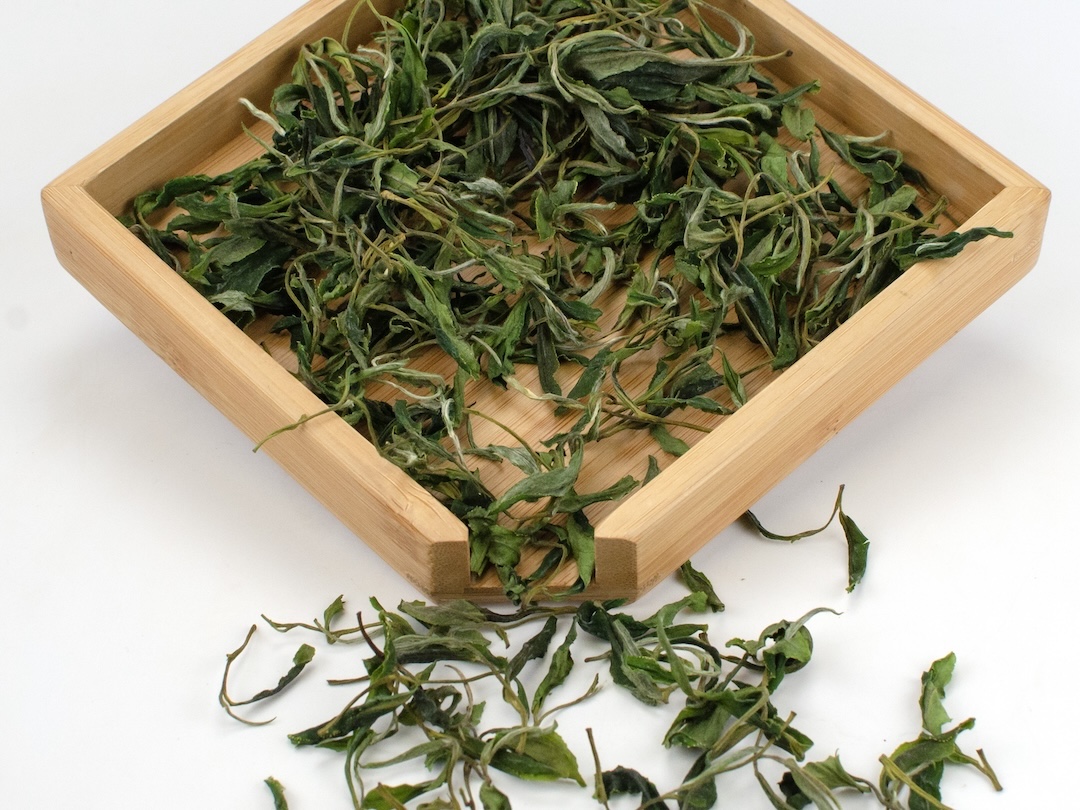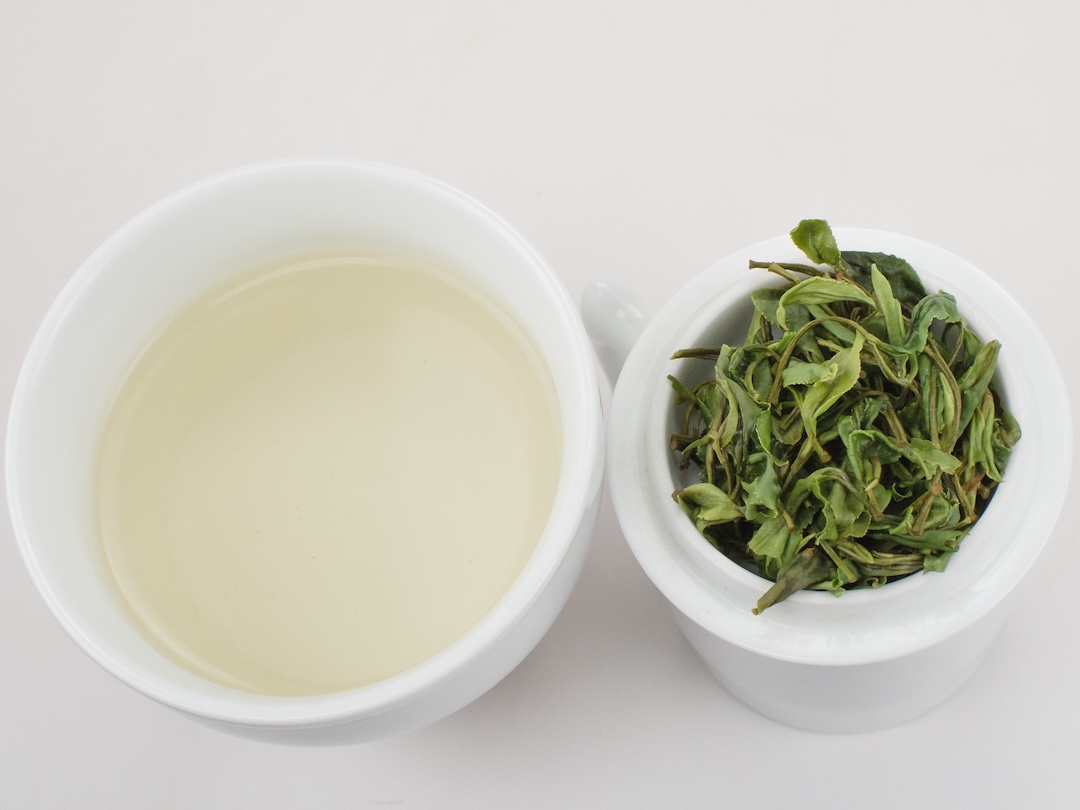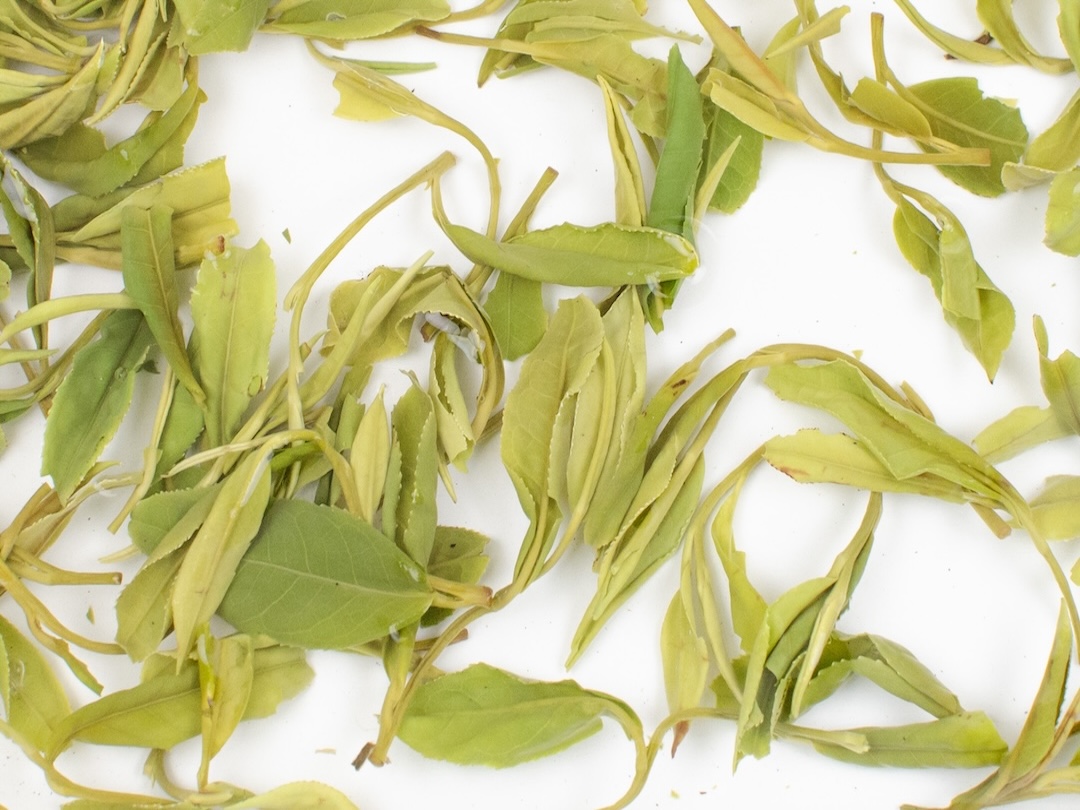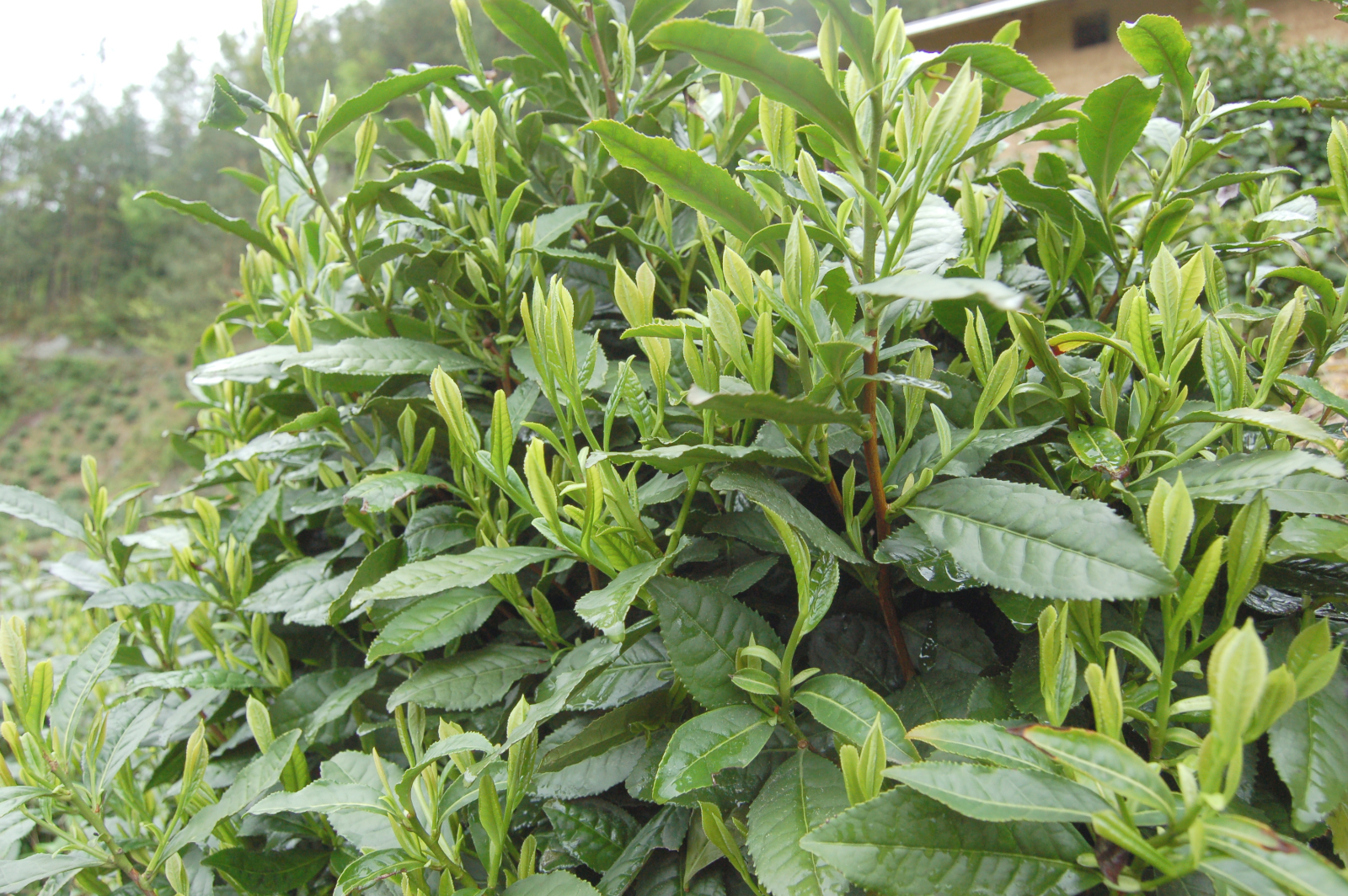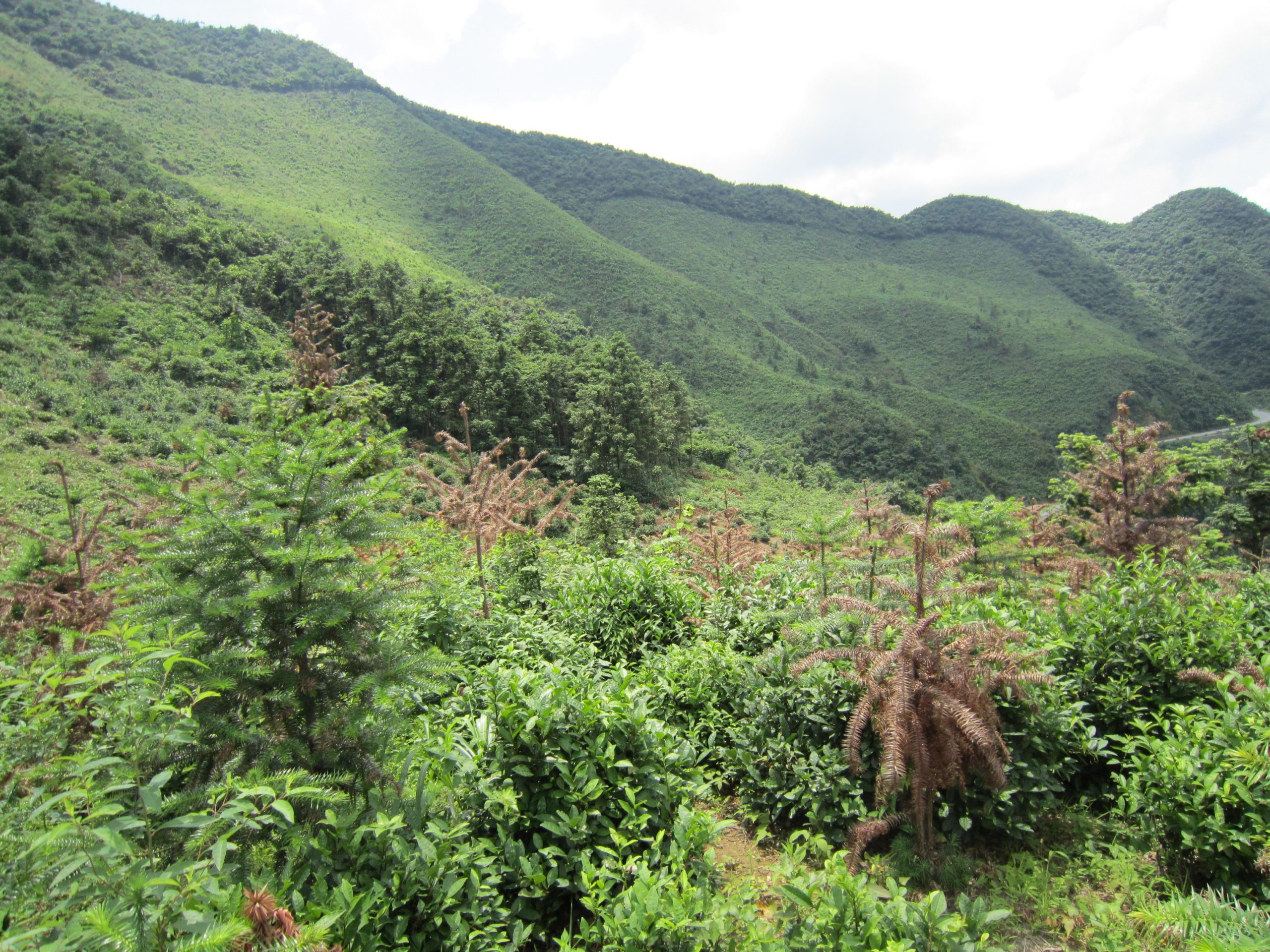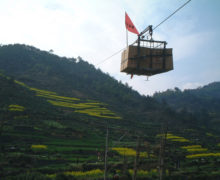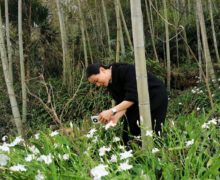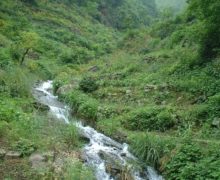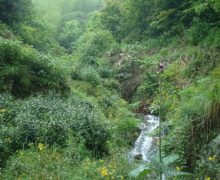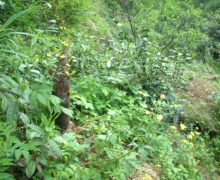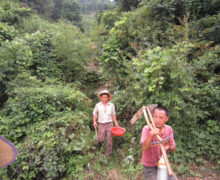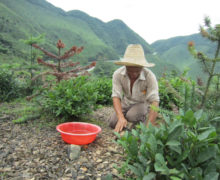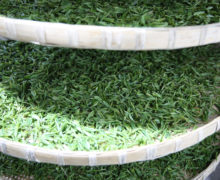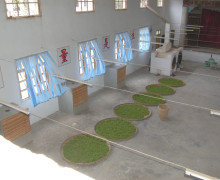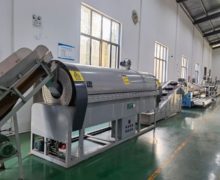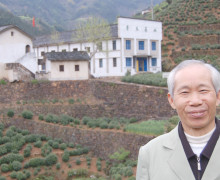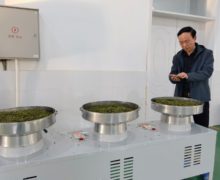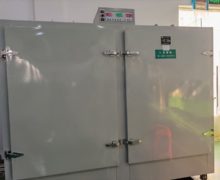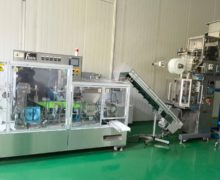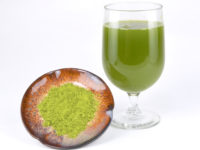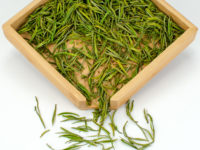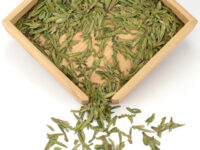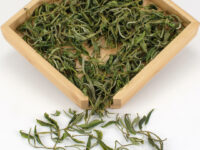Mountain Forest Huangshan Maofeng
Green Tea 2025
The earliest harvest of this iconic Anhui tea, from remote forested mountaintop gardens in famous Huangshan. The most delicate essence of spring, a forest breeze with sophisticated savory notes and refreshing mineral sweetness.
$31.00
- 2025 $15.00
- Tea Origin
- She County, Huangshan City, Anhui Province, China
- Tea Bush
- Huangshan Dayezhong (Yellow Mountain Large Leaf Heirloom Tea Bush)
- Tea Maker
- Wang Huizhou
- Harvest Time
- Mid-April
- Plucking Standard
- One bud, two leaves
This tea was grown in a natural forest environment in a remote high-altitude tea garden that is nearly inaccessible up on the very mountain tops. The tea cultivar used to make Huangshan Maofeng is an heirloom or quntizhong seed-grown variety that possesses great genetic diversity. These bushes yield a surprisingly deep and complex flavor, even though its taste is very clean and smooth, with a delicate sweetness and a fresh floral aroma. The very natural shape of the dried tea, looking like it was just plucked from the bush, is the result of very gentle kneading during processing that avoids breaking the fragile buds and young leaves of spring growth.
Growing Mountain Forest Huangshan Maofeng
Huangshan Maofeng tea is usually harvested in Anhui Province in the beginning of April around the start of the Qing Ming Festival. However, the garden that produces this Huangshan Maofeng lies very high in the mountains at 1,200 meters in altitude. Because of the climate difference, the plants put out buds about two weeks later than gardens further down the mountain.
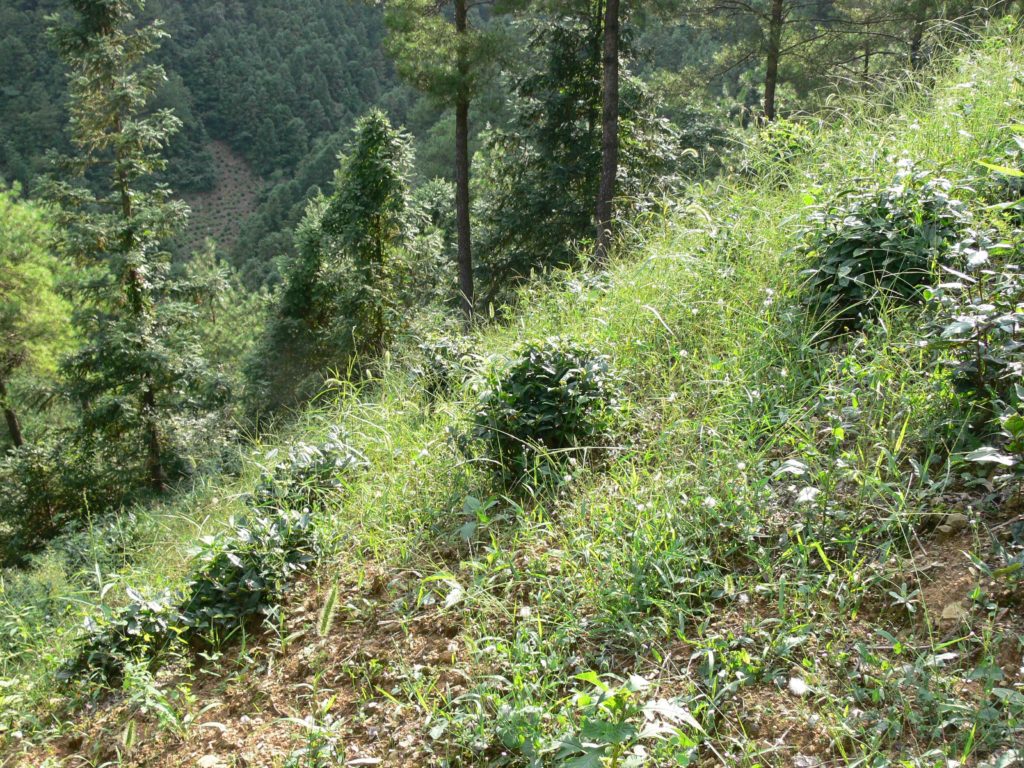
The cooler cloudy and misty climate at these heights produces tea that is sweet and rich in antioxidants and amino acids. The plants themselves grow naturally, scattered on the steep mountain slopes. Though the few local residents check on the bushes and weed around them by hand in July and August, the bushes go largely untended through the winter and early spring, and no fertilizers, pesticides, or herbicides of any kind are ever used.
The Wang family tea factory
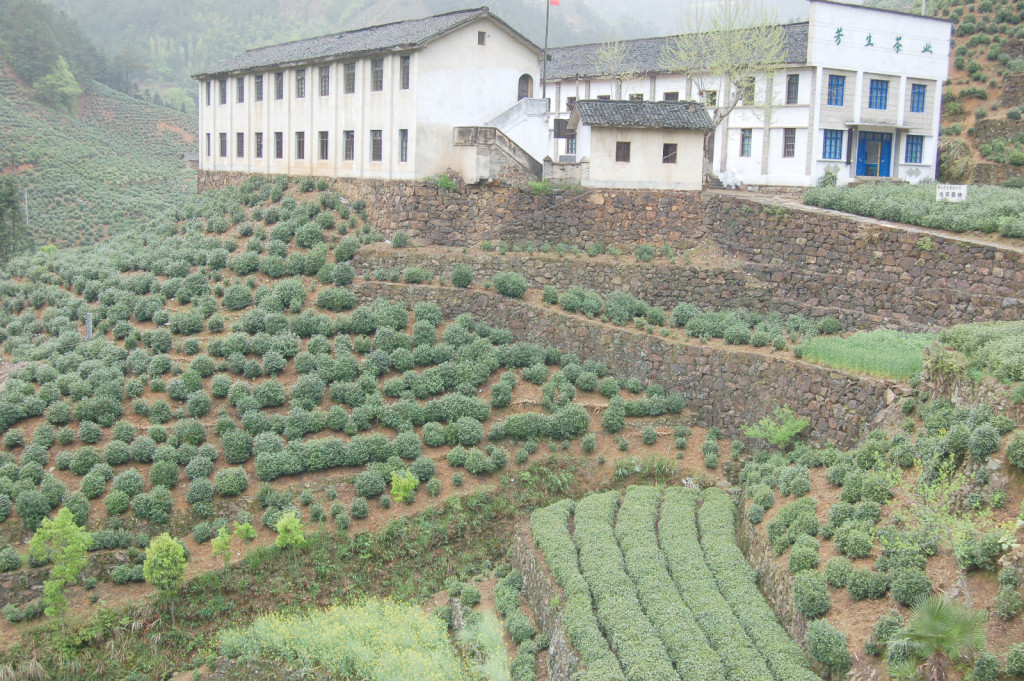
Just getting to the gardens and processing facilities high above Mulingzhou Village where this tea is produced is an achievement in itself. It takes a few hours to drive out of Huangshan City to the end of the road and then a strenuous hike up the steep mountainside. Over the years, local residents have carved steps into the stone of the mountain to make the passage feasible. The hike alone is such an ordeal that during the tea harvest, the tea master and workers simply stay up on the mountaintop and live in the barracks next to the factory while they process the tea.
The Fangsheng Tea factory is both a feat of careful engineering and painstaking work. Nested into the steep mountainside, just below the mountain’s apex, are two buildings: a two-story factory and a smaller building holding a kitchen and a bunkhouse. They sit on a foundation built of stones. Everything that went into the factory had to be carried up the mountain by hand. The factory is such a far walk up the mountainside that a long cable line had to be installed to quickly transport tea down the mountain via cable car as soon as it was finished. It is quite an experience just to sit on the porch there and have a cup of tea.
The tea makers of Huangshan
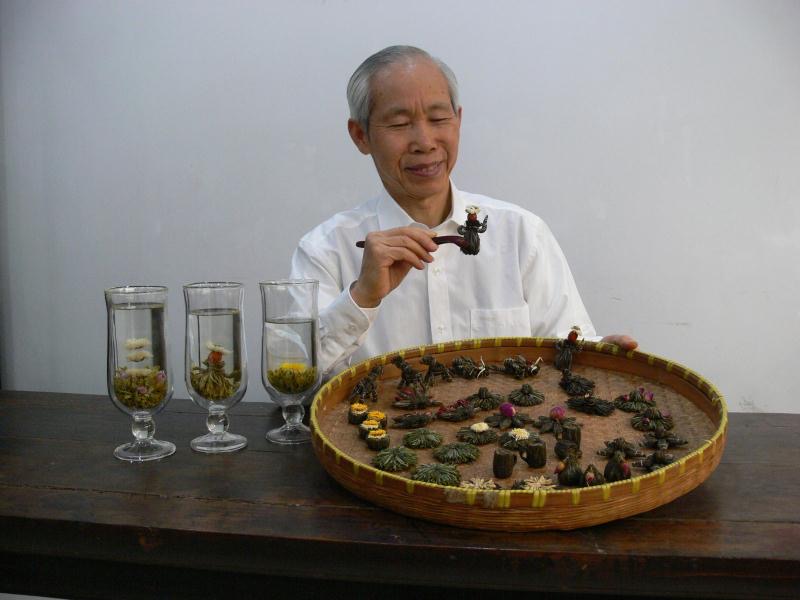
Master tea maker Wang Huizhou and his late father Wang Fangsheng are part of a long lineage of tea making that extends back generations. Wang Fangsheng was a famous expert in Chinese tea and also the original inventor of the wildly popular blooming display tea that opens like a flower when infused. Mr. Wang junior is a highly respected tea maker and inventor in his own right and represents the sixth generation of tea makers in the family.
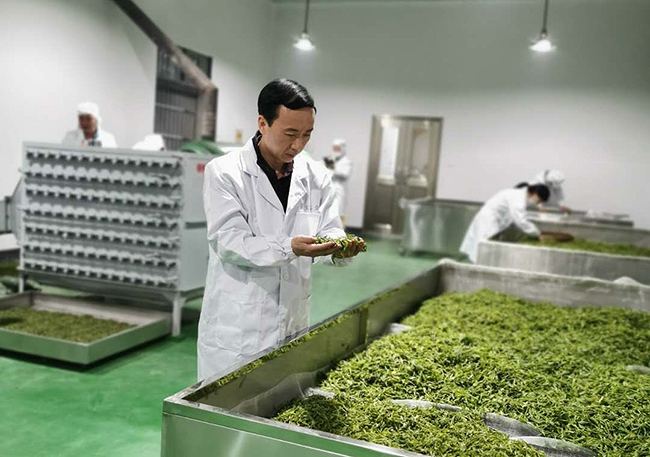
The Wang family has been instrumental in nurturing and revitalizing the tea industry in the Huangshan (Yellow Mountains) area over the years. They have traveled extensively in She County to visit countryside tea farmers and share skilled knowledge of tea processing and garden management, which has raised the quality of tea locally produced as well as drastically increased farmer earnings. The Wang family has developed and maintained strong relationships with the tea farmers of Huangshan.
No chemical fertilizer, pesticide, or herbicide was used in the production of this tea. Click here to read more about our promise to fair trade and the environment.

